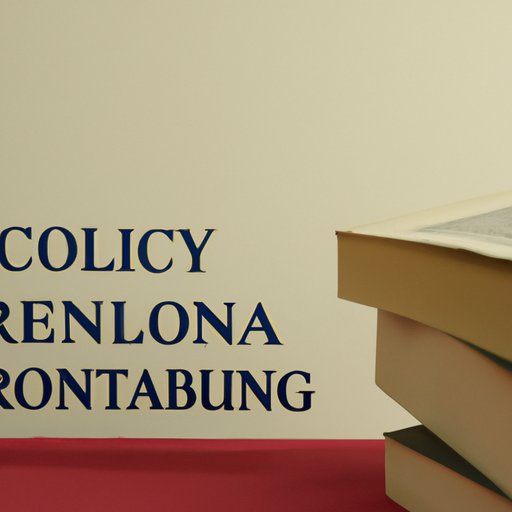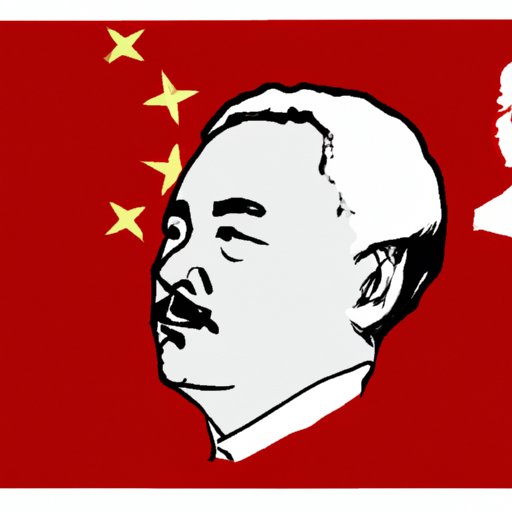Introduction
The Cultural Revolution was a period of immense social and political upheaval in China during the 1960s and 1970s. The movement was led by Mao Zedong, the Chairman of the Communist Party of China, who sought to reassert his authority over the nation and eliminate those he deemed to be threats to his power. The Cultural Revolution had far-reaching consequences for China and its people and has left an indelible mark on modern Chinese society.
Examining the Political and Social Ramifications of the Cultural Revolution
The Cultural Revolution brought about significant changes to the political landscape of China. In 1966, Mao Zedong declared that the “Four Olds”—old customs, old culture, old habits, and old ideas—were to be eliminated from Chinese society. This led to a period of extreme political repression and censorship, as well as a crackdown on dissent and criticism. According to a study conducted by the Chinese Academy of Social Sciences, the Cultural Revolution resulted in the deaths of at least 1.5 million people, with many more being persecuted and imprisoned.
The Cultural Revolution also had a profound impact on Chinese society. During this period, traditional values and beliefs were rejected in favor of revolutionary ideals and loyalty to Mao Zedong. Traditional forms of entertainment, such as opera, were banned, and all aspects of life were politicized. Many intellectuals and artists were persecuted, and the country’s education system was disrupted. Millions of students were sent to the countryside to work as part of Mao’s efforts to promote proletarian revolution.

Exploring the Economic Consequences of the Cultural Revolution
The Cultural Revolution had a devastating effect on the Chinese economy. In 1968, the nation’s economic output fell by 33%, with agricultural production dropping by 20%. Industrialization also suffered, as factories and businesses were closed or destroyed. As a result, millions of people were left unemployed, leading to widespread poverty and famine. According to the World Bank, the Cultural Revolution caused economic losses of up to $100 billion.

Analyzing the Educational Changes Brought About by the Cultural Revolution
The Cultural Revolution brought about drastic changes to the education system in China. Traditional education was replaced by revolutionary thought and political indoctrination, and academic freedom was severely limited. Students were encouraged to criticize their teachers and report any perceived counterrevolutionary activities. Intellectuals were purged from universities, and many books were banned or destroyed.
In addition, Mao Zedong introduced a new system of political education, which focused on the study of Marxist-Leninist theory and Maoist ideology. Schools were renamed “Revolutionary Colleges”, and students were expected to devote their time to studying revolutionary literature and participating in political rallies and parades.

Evaluating the Legacy of the Cultural Revolution in Modern China
The Cultural Revolution had a lasting impact on Chinese society. On the one hand, it led to the establishment of a single-party state and the elimination of traditional beliefs and values. On the other hand, it also helped to create a sense of national unity and pride, and it provided the impetus for the country’s rapid economic growth in the 1980s and 1990s.
Today, the legacy of the Cultural Revolution is still felt in China. The country’s education system remains heavily politicized, and there is still a great deal of censorship and repression of dissent. At the same time, the nation has embraced capitalism and market reforms, and its economy is now one of the largest in the world.
Conclusion
The Cultural Revolution was a period of immense political, social, and economic turmoil in China. It brought about drastic changes to the nation’s political, social, and economic landscape, as well as its education system. Despite its negative consequences, the Cultural Revolution also had some positive effects, such as creating a sense of national unity and helping to spur economic development. The legacy of the Cultural Revolution is still felt in modern China, and its effects will continue to shape the nation’s future.
This article has significant controversies. It is important to respect the differing beliefs of individuals and different forms of societal organization.
(Note: Is this article not meeting your expectations? Do you have knowledge or insights to share? Unlock new opportunities and expand your reach by joining our authors team. Click Registration to join us and share your expertise with our readers.)
